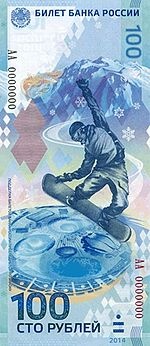Russian economy to shrink in 2015 as sanctions, falling oil prices bite
03 Dec 2014
Russia, the world's eighth-largest economy, is expected fall into recession next year as western sanctions and plunging oil prices begin to take their toll.
 In its latest economic outlook, Russia's ministry of economic development has forecast a 0.8-per cent contraction for the country's economy in 2015, a downward revision from its September estimate of 1.2-per cent expansion.
In its latest economic outlook, Russia's ministry of economic development has forecast a 0.8-per cent contraction for the country's economy in 2015, a downward revision from its September estimate of 1.2-per cent expansion.
The recession, Russia's first since 2009, could begin in the fourth quarter of the current year, the report said. Overall, the economy is expected to grow 0.6 per cent this year.
Russia's deputy prime minister Alexei Vedev said, "The main prerequisites of our September forecast were the high price of oil and the lifting of sanctions by the middle of 2015. We now assume that all the sanctions persist in 2015.''
''This means the closure of external capital markets for the majority of Russian companies and banks, as well as an unpleasant term investment - uncertainty and insecurity," Vedev added.
According to finance ministry official Maxim Oreshkin, based on an estimated average oil price of $80 a barrel in 2015, his ministry's GDP growth estimate is in line with the economy ministry's forecast of 0.8-per cent contraction.
Russia's reliance on tax revenues from the oil industry makes it particularly vulnerable to price fluctuations.
Crude oil prices have fallen over 35 per cent in the last six months to around $70.54 a barrel for Brent yesterday due to oversupply caused by rising US shale oil production as well as weaker demand from China, the world's second-largest economy.
Petroleum cartel OPEC met last week to discuss the issue of falling oil prices, but decided to keep their quotas unchanged.
According to some analysts, the real damage from collapsing rouble and oil price is to investment and growth.
On Monday, the Russian rouble suffered its biggest one-day fall in 16 years.
It slid almost 9 per cent against the dollar before rallying after suspected central bank intervention. The currency has weakened nearly 30 per cent against the dollar in the last three months. It slipped to 53 roubles a dollar in yesterday's trading.
The economy ministry expects the rouble exchange rate in 2015 at 49 roubles while the finance ministry projects it below 45.
The US and the European Union have imposed several sanctions against Russia over its involvement in unrest in neighbouring Ukraine, targeting Russia's energy, defence and financial sectors. In retaliation, Russia banned import of food products from several countries of the western world.
This is the first time in the past several months that the Russian government has acknowledged the nation's economy may enter into a recession.
Household disposable income is also likely to fall up to 2.8 per cent next year, down from the earlier estimate of 0.4 per cent growth, while unemployment is expected to rise from 6.1 per cent to 6.4 per cent.
Russia's budget for 2015-2017 allows for injecting up to 500 billion roubles ($9.3 billion) next year from the reserve fund to prop up the nation's economy. Oreshkin said that this could further be increased.
The outlook has increased the inflation forecast to 9 per cent from 7.5 per cent by the end of next year.
Capital investment in the country is expected to decline 2.8 per cent this year and 3.5 per cent in 2015, while the earlier forecast considered a 2-per cent investment growth next year.
Capital outflow is forecast to increase from $100 billion to $125 billion in 2014 and from $50 billion to $90 billion in 2015.
However, Vedev is hopeful that oil prices would return to $85-95 a barrel in the second half of 2015.
Profits of Russia's state-owned banks are declining due to western sanctions and the weakening of the ruble.
VTB bank, one of Russia's leading financial institutions yesterday reported ''a panic'' in the Russian banking system after the fall in oil prices.
Due to the drop in oil prices Russia entered the complex social and economic crisis, which was reflected in including the banks, the chairman of the supervisory board of VTB Sergei Dubinin said.
Just a day before, Russian president Vladimir Putin said that Russia is scrapping a proposed $20-billion gas pipeline to south eastern Europe, a project that was intended to demonstrate Russia's energy supremacy in the region. (See: Russia to scrap South Stream gas pipeline).



















